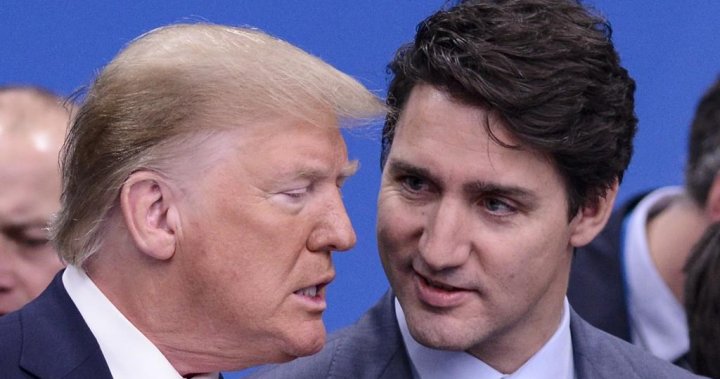Canada
Trudeau, Trump talk Ukraine as allies fear U.S. withdrawal from war effort

Introduction: A Global Crisis in Focus
The ongoing conflict in Ukraine has sparked a series of high-stakes diplomatic maneuvers, drawing in global leaders and highlighting the delicate balance of international relations. At the heart of recent discussions are Canadian Prime Minister Justin Trudeau and U.S. President Donald Trump, who convened to address the escalating tensions and the potential shift in U.S. strategy towards the conflict. As the war enters its fourth year, the international community is on edge, pondering the implications of changing alliances and strategies.
Trudeau and Trump’s Dialogue: Navigating Shifting Sands
Prime Minister Trudeau and President Trump’s recent conversation underscored the complexities of the Ukraine conflict, particularly the fears of diminishing U.S. support for Kyiv. With a virtual G7 meeting looming, the discussions highlighted the urgency of maintaining a united front against Russian aggression. The potential summit between Trump and Putin signals a significant shift in U.S. diplomacy, moving away from isolating Russia towards a more conciliatory approach. This change has raised eyebrows among Ukraine and its European allies, who fear a weakening of resolve in their defense.
Concerns Over U.S. Support: A Fault Line in International Unity
The anxieties about U.S. commitment to Ukraine are palpable. Recent discussions between Russian and American representatives, excluding Ukraine, have evoked fears of a peace settlement that sidelines Kyiv. Senior U.S. officials have floated the idea of Ukraine compromising on NATO membership and territorial losses, a prospect met with fierce resistance from President Zelenskyy. Trump’s initial suggestion that Ukraine bore responsibility for the invasion, though later retracted, adds to the volatility, leaving allies questioning U.S. steadfastness.
European Allies Stand Firm: A United Front for Ukraine
Amid these shifts, European leaders like British Prime Minister Keir Starmer have reaffirmed their unwavering support for Ukraine. Starmer’s upcoming visit to Washington emphasizes the importance of Kyiv’s involvement in any peace negotiations. Both Trudeau and Starmer have echoed the necessity of Ukrainian inclusion, stressing that no sustainable peace can be achieved without their input. These assurances from Europe contrast with the uncertain stance from the U.S., underscoring the crucial role of European solidarity.
Border Dynamics: Beyond the Battlefields
Beyond the battlegrounds of Ukraine, the Trudeau-Trump discussion also touched on pressing bilateral issues, particularly the resurgence of fentanyl trafficking across the Canada-U.S. border. Despite progress in reducing seizures, both leaders acknowledged the ongoing challenge. Trump’s tariff threats on Canadian goods highlight the economic dimensions of this health crisis, complicating the diplomatic landscape. The collaboration on fentanyl reflects the multifaceted nature of international cooperation, extending beyond military aid to public health and economic stability.
A Proposed Deal: Resources and Recompense
In a bid to secure U.S. interests, Trump proposed a deal granting access to Ukrainian natural resources as repayment for aid. Initially rebuffed by Zelenskyy, the offer is under reconsideration, revealing the economic underpinnings of international aid. This move reflects the intricate dance of geopolitical and economic interests, where support is often tied to reciprocal benefits. As the situation evolves, the balance between humanitarian aid and resource exploitation will remain a contentious issue, shaping the future of Ukraine’s conflict and global alliances.
Conclusion: The Path Ahead
As the international community grapples with the Ukraine crisis, the path ahead is fraught with challenges. The interplay of diplomacy, economic interests, and military support will determine the conflict’s trajectory. Leaders must navigate these complexities with a commitment to justice and inclusivity, ensuring that Ukraine’s voice is central to any peace negotiations. In this delicate balance, the world watches, hoping for a resolution that honors sovereignty and fosters enduring peace.